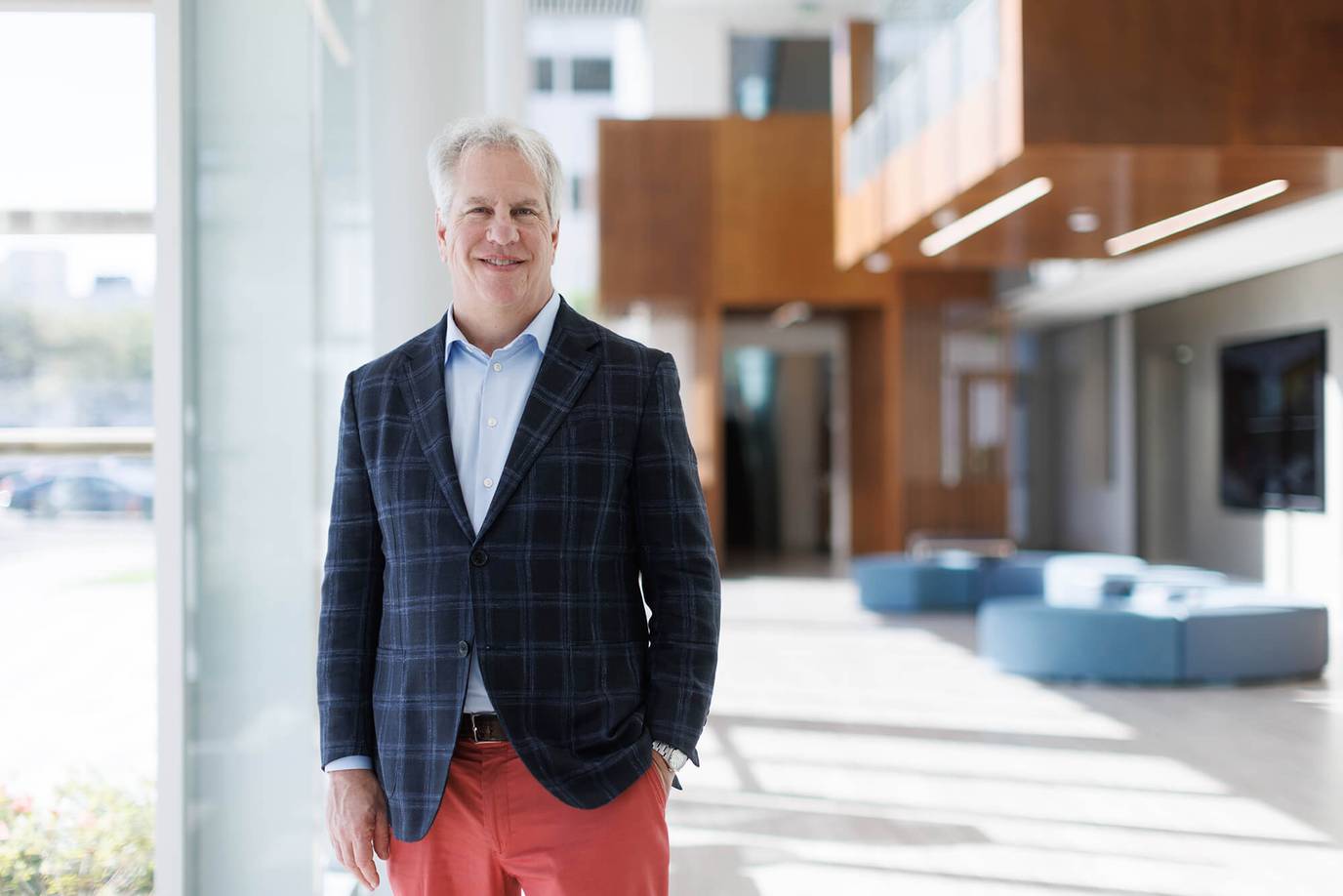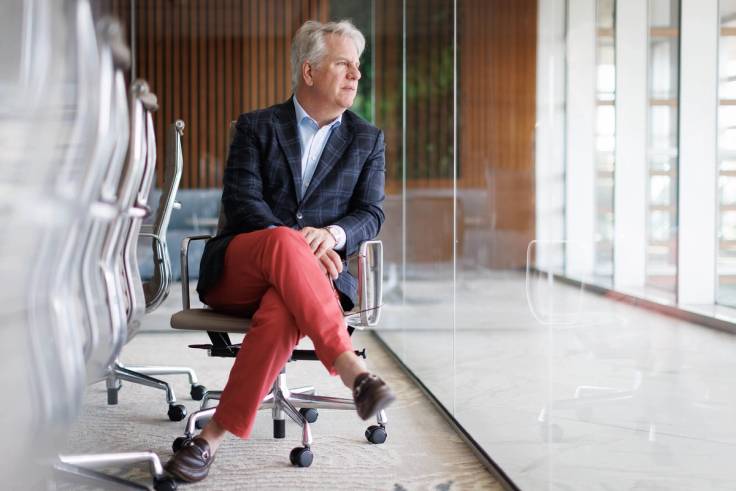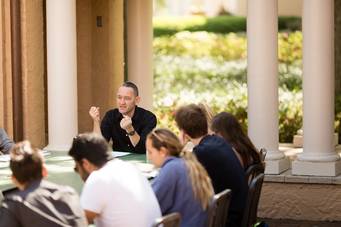What I’ve Learned: Sam Hocking ’87
December 18, 2023
By Luke Woodling ’17MBA

Sam Hocking ’87 shares his top takeaways from a life and career defined by an incredible capacity for reinvention.
Sam Hocking ’87 has always had a knack for building something out of nothing. Throughout his career, Hocking has leveraged an interdisciplinary approach, curiosity-fueled creativity, and dogged determination to manufacture opportunities that range from new careers to new companies.
It’s how the Rollins economics major launched a career in TV news despite having no formal journalism education or experience. And it’s how Hocking went from working for small-town local news stations to working for major broadcasting companies in London, Moscow, Geneva, and Amsterdam.
It’s also how, a decade after establishing himself as a journalist, Hocking would pivot to a successful career in finance. After starting at square one in a new industry, he steadily climbed the Wall Street ladder and eventually ascended to managing director roles at Bank of America and BNP Paribas, the largest banking group in Europe.
Hocking’s capacity for reinvention has served him well in his current pursuits as a tech entrepreneur. His first startup, AltX, was named one of the world’s top 20 tech disruptors by The Financial Times before being acquired in 2017. Hocking founded his current company, Vertis.ai, in 2020. The firm’s workforce and talent benchmarking platform helps companies like Airbnb make data-driven decisions around everything from remote work to compensation.
“I’ve learned that if you really want something, you can get it, but it’s not just going to be given to you,” says Hocking. “You have to create those opportunities for yourself.”

Rollins was always open to new possibilities. It wasn’t just “come to class, take the tests, and get out of here.” You could try something different, something unique. That absolutely influenced me.
Adversity is an amazing teacher. I got hurt playing soccer my junior year at Rollins and the rehab was just Herculean. But that experience of successfully coming back has made a difference at so many points in my career.
A liberal arts education is learning how to problem-solve. I think that’s fundamentally one of the most important things anyone can learn.
Stay really curious. That’s one of the things I learned at Rollins. There are so many interesting things to discover if you stay open to learning.
Not every path must have a defined outcome. If you let curiosity guide you and you’re willing to do the work, it might lead to outcomes you didn’t even imagine.
You have to be willing to hear lots of noes. A lot of people are going to say no, so you have to be agile and adapt and you have to be persistent.
Embrace an interdisciplinary approach. Through my interdisclipinary courses at Rollins, I developed the ability to put different thoughts and different disciplines together to create new insights and innovation.
You need to take inventory every few years—where you are, what you’re doing—and ask yourself, “Is this what I want to do?”
Don’t just focus on the risks of making a change or trying something new. It’s important to also consider, “What if it was better?”
Teaching can be a great way to keep learning. I recently started teaching an entrepreneurship course at Rollins, and I’ve already learned a lot from returning to the classroom in this capacity.
Try to surround yourself with coaches—not just cheerleaders. Even the greatest athletes of all time need coaches to reach that next level.
The world is always evolving, and you’ve got to keep evolving with it. Finished is not a word I use, whether I’m talking about products or people. Keep learning, keep exploring.
We are in a period of monumental change as we grasp how to use AI across virtually everything we do—from writing and content creation to coding and creating new insights. I see this mainly as positive as we will be able to access data in ways we never had before and be able to understand context in new and exciting ways. The key will be how use the technologies as they improve and become more and more a part of our mainstream life.

See for Yourself
Get a feel for Rollins’ unique brand of engaged learning and personalized attention through one of our virtual or in-person visit experiences.
Read More
March 20, 2024
Rollins’ External Relations Team Named Finalist for Prestigious PR Award
Rollins’ Office of Communications & External Relations earns a spot as an Anvil Award finalist for media coverage of valedictorian Elizabeth Bonker ’22.
March 19, 2024
Strom Publishes Book on History of Hunger Relief
History professor Claire Strom has co-written a new book on the national hunger relief movement alongside Dave Krepcho, president and CEO of Second Harvest Food Bank of Central Florida.
March 13, 2024
Small Classes, Big Impact
At Rollins, our commitment to small, discussion-based classes drives deeper learning and deeper connection.
